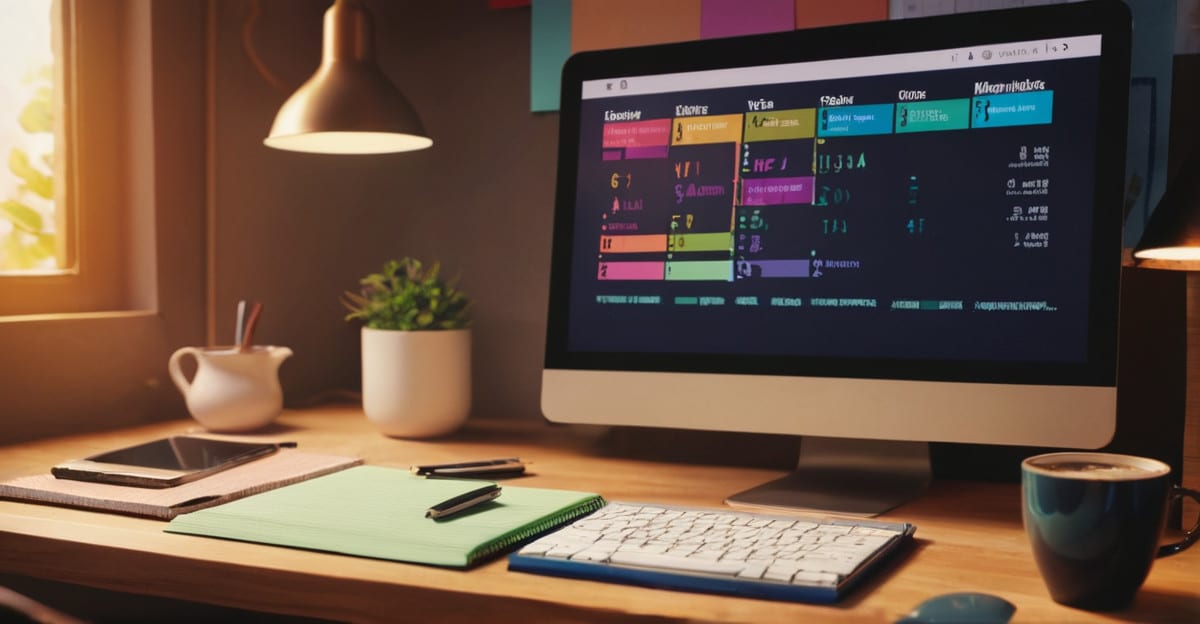
Introduction
Reaching goals in both your personal and professional life requires effective time management. It might be difficult to find efficient time management strategies with the hectic demands of modern living. We will look at 10 tried-and-true methods for improved time management in 2024 in this article. These techniques are intended to improve work-life balance, increase productivity, and help you make the most of your time.
Set Clear Goals and Priorities
The foundation of efficient time management is the establishment of distinct objectives and priorities. Without clear objectives, it’s simple to become distracted by unimportant chores. Determine which of your goals are most important first. Divide these into more manageable, smaller jobs. To make sure your goals are reasonable and reachable, use techniques like SMART goals (Specific, Measurable, Achievable, Relevant, Time-bound).
After you’ve determined your goals, order them. Not every task is the same, and some will be more important to your success than others. Employ methods such as the Eisenhower Matrix to arrange tasks according to their significance and urgency. This will free your mind from unimportant duties and help you concentrate on what really matters.

Create a Daily Schedule
Making a daily schedule helps you stay focused and organized. You may set up distinct time slots for various tasks in an organized timetable, which helps you make sure you give each work enough time. Make a list of all you have to get done that day. Allocate time slots according to the projected duration and priority of each task.
To make and maintain your schedule, use tools like time management applications or digital calendars. Reminders and notifications are two features that these tools frequently provide that might help you stay on task. To prevent burnout and sustain productivity throughout the day, don’t forget to factor in breaks when creating your plan.
Eliminate Distractions
One of the main challenges to efficient time management is distractions. Distractions of many kinds, including emails, social media, and loud surroundings, can drastically lower your productivity. The first step in removing distractions is to determine what your primary sources are. Once they’ve been located, take action to reduce or eliminate them.
Think about applying methods such as the Pomodoro Technique, which entails working in brief, concentrated bursts interspersed with brief pauses. By using this technique, you can reduce distractions and keep your focus. Make sure your workstation is designated, distraction-free, and supportive of concentrated work.

Learn to Say No
Being able to say no is essential for efficient time management. Taking on too many responsibilities can quickly lead to overwhelm. Saying no to requests or projects that don’t fit your priorities and goals will help you stay focused and keep your schedule from getting too busy.
Assess the significance and immediacy of any new assignment or request that comes your way. Please decline or assign it to someone else if it conflicts with your present objectives or goals. Recall that saying no doesn’t mean being unhelpful; rather, it means using your time wisely and making sure you can devote your all to the things that really count.
Delegate Tasks
One of the best ways to manage your time and boost productivity is to delegate chores. You can free up your time to concentrate on higher-priority activities by assigning work to others. Determine whatever tasks may be assigned, then locate qualified candidates to take on those responsibilities.
Make sure to give precise directions and expectations when assigning assignments. Make sure that the tasks are being accomplished to your standards by periodically checking in on the progress. Delegating well not only gives you more time management skills but also empowers others and promotes teamwork.
Use Time Management Tools
Your capacity to efficiently manage your time can be greatly improved with the help of time management tools. There are several tools out there, from basic to-do lists to sophisticated project management programs. Select the tools that best suit your requirements and tastes.
A few well-liked time management programs are Microsoft To-Do, Asana, and Trello. These apps make it simpler to keep organized and on schedule by providing features like task tracking, deadline reminders, and collaboration possibilities. Try out a variety of tools to determine which ones are most effective for you.
Take Regular Breaks
It’s critical to take regular breaks in order to sustain productivity and avoid burnout. Working nonstop without a break can cause weariness and reduce productivity. Plan brief pauses throughout the day to allow yourself to recuperate.
Employ strategies like as the Pomodoro Technique, which calls for working for 25 minutes and then taking a 5-minute break. Take a break from your work, stretch, or do something soothing throughout your breaks. Taking regular breaks helps you mentally and physically rejuvenate so you can return to work with more energy and focus.
Review and Reflect
Continuous improvement requires regular assessment and reflection on your time management techniques. Take some time at the end of each day or week to assess how you performed. Determine what succeeded and what failed. You may improve your time management techniques and make the required adjustments with the aid of this reflection.
If you want to record your experiences and ideas, think about maintaining a journal. By doing this, you can gain important insights into your habits and recognize patterns that require development. Reviewing and reflecting on a regular basis helps you stay on course and keep improving your time management abilities.
Maintain a Healthy Work-Life Balance
Ensuring a sound work-life balance is crucial for general wellbeing and efficient time allocation. Burnout and decreased productivity are two consequences of overworking. Make sure you schedule time for leisure, hobbies, and personal pursuits.
Set limits between your personal and professional lives. As far as possible, avoid working during personal time. Make it a priority to engage in activities like exercise, meditation, and quality time with loved ones that enhance both your physical and emotional health. Living a balanced life increases your output and facilitates better time management.
Conclusion
Proficiency in time management is an essential ability that can greatly influence your output and general well-being. You can maximize your time, accomplish your objectives, and preserve a positive work-life balance by putting these 10 tried-and-true methods for improved time management in 2024 into practice. Recall that managing your time effectively is a continual process that calls for constant adjustment and development. Take charge of your time by putting these methods into practice right now.





